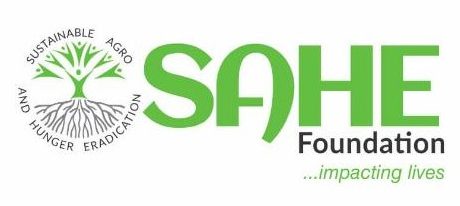THE BIO-INTENSIVE URBAN GARDENING SERIES – EPISODE 19
Do you know that organic farming and natural farming are far apart? The word “organic” is sacred and should not be abused. Organic farming is not a system for making quick money even though it is very profitable.
This piece has been written to bring you in on what organic farming really entails. It is worth your while!
Does practicing natural farming make Organic products?
Organic agriculture does not mean natural agriculture, they are two different words or entities. Some people think because they do natural farming, it is organic, this is wrong.
Organic agriculture is a production system that sustains the health of the soil, ecosystem, animals and people. The fact a farmer doesn’t add any preservative or additive to the produce does not make it organic. It is ethically wrong to label such products organic.
The act of labelling any produce as organic is rampant in Africa and consumers keep falling prey by purchasing these items basically because they want to stay healthy. This is more reason why we should alert the general public that natural does not mean organic.
For instance, if you bought ginger in the market, and because you didn’t add any additives, you labelled it organic. It is wrong because the ginger might not be organic.
Therefore, before you label any product as organic, you need the knowledge of the source of whatever you are purchasing, to check whether it is truly from an organic source or not. You need to confirm to see that the source has been verified by a certification system.
Kindly note that, a product can be grown naturally but still not an organic product.
In organic farming, there are three certification systems which include;
- The word of mouth (verbal declaration):
This is when the producer affirms that he/she is an organic farmer.
- Participatory Guarantee System Certification (PGS):
It is a certification for the local (domestic) market in a country. This certification does not cover export trades but only region-based (regional trades can be facilitated with this certificate. E.g., The PGS system in Nigeria can collaborate with Ghana’s to trade organic goods with each other.
- The Third-Party Certification:
This is meant for export, for example, if you want to export to Europe, the Third-Party Certification is needed. When you use this certificate, you are expected to have complied with the rules of the country you are exporting to.
Having known the types of certifications available to organic farmers, consumers therefore need to be vigilant on the type of organic products they buy by asking relevant questions like knowing the source of the product and requesting for the organic certificates of the seller/ producer before purchase. This in turn will make producers sit up and avoid labelling inorganic produce as organic.
The word “organic” is sacred and should not be abused. Organic farming is not a system for making quick money even though it is profitable. Being organic is a way of life and should be internalized.
A product can’t be labelled organic without certifications. In Nigeria, the Association of Organic Agriculture Practitioners of Nigeria also known as Nigerian Organic Agriculture Network (NOAN) is the regulatory body for organic produce. NOAN has the mandate to issue PGS certificates.
The fact that the Third-Party Certification for export is expensive led to the International Federation of Organic Movement also known as Organics International partnering with different organic bodies to form a certificate for local organic small-scale farmers.
There are four principles in organic farming;
- The principle of health
- The principle of ecology
- The principle of care
- The principle of fairness
Before certificates are issued to the organic farmer, neighbours, facility, and packaging are being assessed. Most African organic farmers have the capacity to pass the above principles except that of fairness. Fairness relates to the relationship with farm workers and the wages are been paid as well as to the consumers buying the products to check whether honesty is in play (the produce being actually organic and not otherwise)
The above are some of the factors being looked at before issuing the PGS certification.
The PGS certification is a better system than the Third-Party certification because in PGS there is exchange of knowledge. This is because inspections are done in group which give opportunities to share and exchange knowledge (rather than a critic inspector). As the officials are checking the farm, corrections are being made immediately if any problem is noticed which is a different case in Third Party certification. For the latter, the farmer must have a consultant to assist while the auditor just observes and takes note.
Also, in PGS, farmers are allowed to keep records according to their abilities with directions on what record to keep. while stating the records farmers need to keep. In this case, farmers can decide to keep records using a laptop, phone or book as long as they are available during inspection. Farmers with half a plot, one plot or half an acre of land can get PGS as it is meant for small scale farmers who plan to sell organic labelled produce. PGS is used in over 80 countries around the world.
Please note that in PGS, a consumer is allowed to visit the organic farm unannounced to verify whether the farming processes were actually organic.
Overall, a natural farmer cannot be called an organic farmer. We need to practice the principle of fairness.

